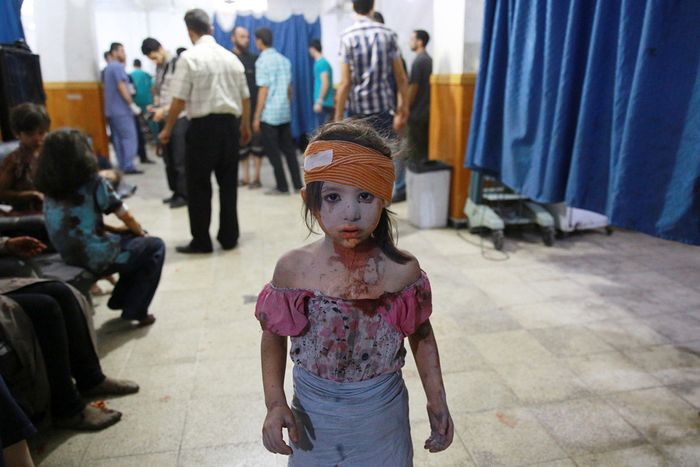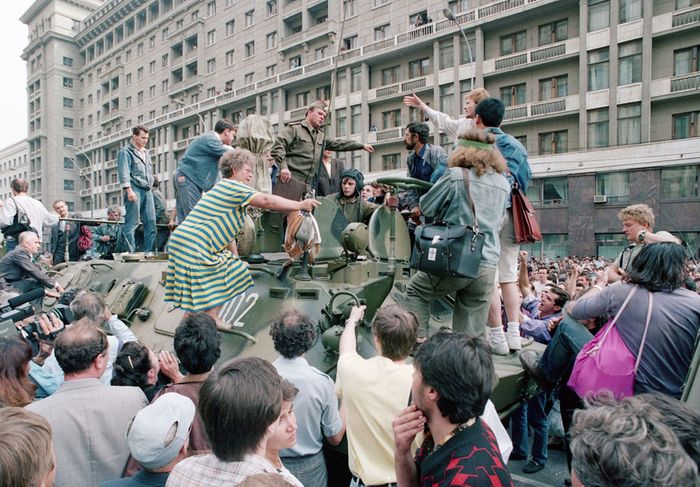From Alan Taylor’s In Focus, this year’s top news photos.

See also the three part 2014 year in photos: part 1, part 2, part 3.
Link via Jason Kottke
From Alan Taylor’s In Focus, this year’s top news photos.

See also the three part 2014 year in photos: part 1, part 2, part 3.
Link via Jason Kottke
Facebook’s Safety Check lets you notify friends and family that you’re safe after a natural disaster or “human disaster.” Robinson Meyer wrote about it in the Atlantic.
To know, within an hour or two of an event, that someone is safe: It’s so valuable, so emotionally practical, as to be almost priceless. It is anti-terror, in a way: It says, be not afraid. And in the three places where it was first deployed—Afghanistan, Chile, and Nepal, all three after major earthquakes—its activation made a lot of sense, because earthquakes are events which by their nature can affect millions over huge swaths of territory.
But earthquakes and cyclones are not themselves public-facing events. Terrorist attacks are. As Brian Jenkins, a terrorism scholar at the RAND Corporation, writes, “terrorism is aimed at the people watching.” Terrorism is a public-relations campaign with guns and bombs. It weaponizes culture, and it exploits journalistic concern for heinous violence to grab media attention and get pathology taken instead as politics.
Robinson Meyer wrote a great essay in The Atlantic about the difference between saying and writing on Twitter:
On Twitter, people say things that they think of as ephemeral and chatty. Their utterances are then treated as unequivocal political statements by people outside the conversation. Because there’s a kind of sensationalistic value in interpreting someone’s chattiness in partisan terms, tweets “are taken up as magnum opi to be leapt upon and eviscerated, not only by ideological opponents or threatened employers but by in-network peers.”
Anthropologists who study digital spaces have diagnosed that a common problem of online communication is “context collapse.” This plays with the oral-literate distinction: When you speak face-to-face, you’re always judging what you’re saying by the reaction of the person you’re speaking to. But when you write (or make a video or a podcast) online, what you’re saying can go anywhere, get read by anyone, and suddenly your words are finding audiences you never imagined you were speaking to.
Somebody must have downloaded this, right? Anybody got a copy?
Many of the never-before-published documents and photographs Vaughan unearthed became key components of the web series, appearing only online and not in printed versions of the series. These weren’t just extras, but key chapters of the story, told digitally. And when the website disintegrated after the Rocky’s closure, these stories weren’t relegated to an old box on an unreachable shelf; they were gone.
If a sprawling Pulitzer Prize-nominated feature in one of the nation’s oldest newspapers can disappear from the web, anything can.
Link via Rose Eveleth
Facebook recently filed a rather unsettling patent application describing (among other things) a hypothetical social-graph-based credit scoring system. What level of freaked out would be an appropriate response?
Facebook makes its money by encouraging people to have large friend networks and create lots of content for it to show ads against. And given that that’s the primary profit driver for Facebook, as a practical manner, it would really surprise me if they decided to get into the credit-scoring business, just because I think that’s going to make people feel panicked and uncomfortable. If I were them, I would not be in a giant rush to do that.
This makes me wonder if a lot of people suddenly started blocking ads, would companies like Facebook move quickly to adopt more dystopian business models? Or would they be more likely to start embracing those business models much earlier—quietly, secretly, mischievously—in anticipation?
A 25 minute video on Ray Bradbury from The Atlantic.
I love that he lived in Los Angeles but didn’t drive a car. There’s also this moment at 4:25 where you see a sign above his desk “DON’T THINK.” Seems like sound advice for how to conduct yourself behind a keyboard, so I’ve added a similar one to my own desk.
All this talk about “Amercia” is a distraction:
Gaffes stick when they reinforce an existing criticism of a candidate. Is anyone really worried that Mitt Romney, whose personal crest may as well be a spreadsheet, is insufficiently obsessed with details?
Here is Jay Smooth explaining why the Romney “meh” response is dangerous:
Also, my site was down for a while earlier today. It’s all fixed now.
Today’s In Focus shows the fall of the Soviet Union, culminating in the dissolution of the Communist Party on December 25th, 1991. The post includes an essay by Alain-Pierre Hovasse, Chief Photographer for the Agence France Presse, who was on assignment in Moscow.
We really had a notion that life here was changing dramatically, almost every day. Being a child of the Cold War, I remember feeling elated and privileged to be there at that time, to witness the apparent demise of this repressive political regime.
